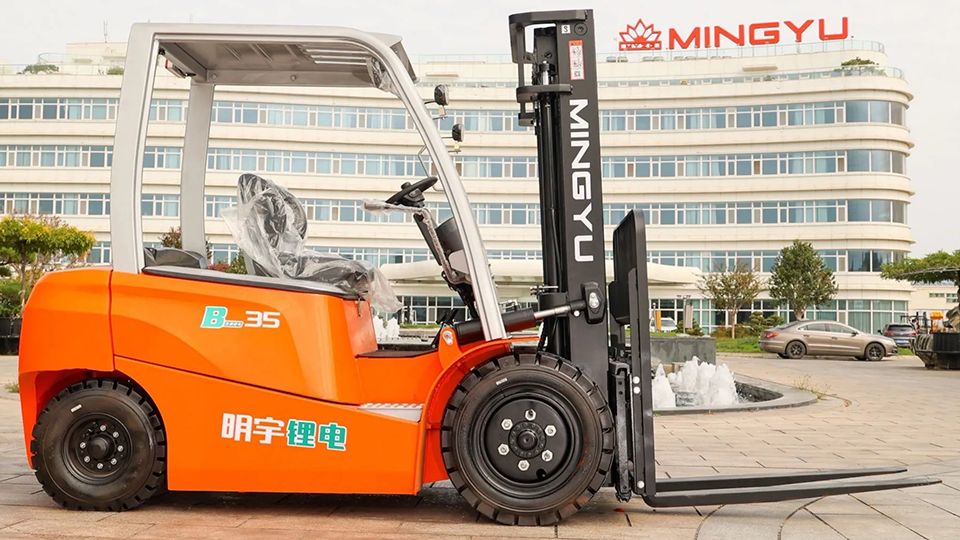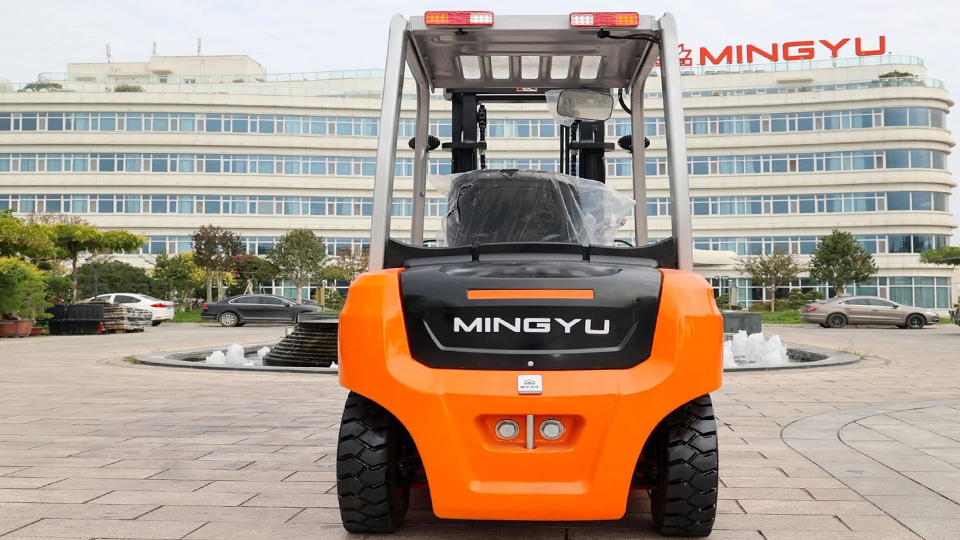
The True Cost of a Toyota Forklift: A Comprehensive Technical Breakdown
When a business sets out to acquire a new forklift, the question "how much does a Toyota forklift cost?" is often the first and most critical consideration. However, the answer is far from simple. The price of a Toyota forklift is not a single, fixed figure, but rather a complex equation influenced by a multitude of technical, operational, and financial factors. From the initial purchase price to the long-term total cost of ownership (TCO), understanding these variables is essential for making a sound investment decision.
This article will provide a detailed technical breakdown of what determines the cost of a Toyota forklift, covering everything from the initial purchase price to the long-term operational expenses.
Initial Purchase Price: The Starting Point
The initial sticker price of a new Toyota forklift can range from a relatively low amount for a basic model to well over $100,000 for a heavy-duty, specialized machine. This wide range is primarily dictated by a few key technical specifications.
Model and Class: Toyota offers a diverse range of forklifts, each designed for specific applications. The cost of a simple walkie pallet jack or a narrow-aisle reach truck will be significantly less than a high-capacity internal combustion (IC) forklift or a rugged, rough-terrain model. For instance, a new, standard capacity (e.g., 5,000 lbs.) electric counterbalance forklift might cost in the range of $20,000 to $45,000, while a comparable IC model could be priced at $20,000 to $50,000. Heavy-duty forklifts with a capacity of 30,000 lbs. or more can easily exceed $100,000.
Fuel Type: The type of power source—electric, liquid propane (LP), diesel, or gasoline—is a major cost driver. Electric forklifts generally have a higher upfront purchase price than their internal combustion counterparts. This is largely due to the cost of the industrial battery and charger, which can add $2,500 to $5,000 or more to the total. However, as we will discuss in the TCO section, this higher initial cost is often offset by lower operational expenses.

Capacity and Mast Height: The lifting capacity of the forklift is directly correlated with its price. A machine designed to lift 10,000 lbs. requires a stronger frame, more powerful hydraulics, and a larger engine or battery, all of which increase manufacturing costs. Similarly, the mast, which is the vertical assembly that lifts the forks, affects the price. A three-stage mast that allows for higher lifting heights will be more expensive than a basic two-stage mast.
Tire Type: The type of tires on the forklift also plays a role. Cushion tires, made of solid rubber, are less expensive and are designed for indoor use on smooth surfaces. Pneumatic tires, which are filled with air like car tires, are more expensive but are built for outdoor or rougher terrain.
Attachments and Accessories: A forklift's versatility is often enhanced by a range of attachments, such as side shifters, fork positioners, clamps, or rotators. These technical add-ons can significantly increase the total price. Similarly, optional features like enclosed cabs with heating and air conditioning, sophisticated telematics systems, and specialized lighting packages all contribute to a higher final price.
Used vs. New: The Upfront vs. Long-Term Value Debate
Choosing between a new and a used Toyota forklift is a classic business dilemma.
New Forklifts: A new forklift provides the latest technology, a full manufacturer's warranty, and a predictable maintenance schedule. The upfront cost is higher, but the long-term reliability and lower repair costs can make it a more cost-effective choice in the long run, especially for high-usage applications. Prices for a used Toyota forklift vary dramatically based on age, hours of use, and condition. A used 5,000-lb. capacity model from a few years ago might cost $15,000 to $25,000, while a very old, high-hour machine could be as low as $5,000.
Used Forklifts: A used forklift offers a lower initial investment, which can be a critical factor for small businesses or those with limited capital. However, a used machine comes with inherent risks. It may have higher maintenance costs, a lack of a warranty, and a shorter service life. It is crucial to purchase used equipment from a reputable dealer who can provide a detailed service history and a thorough inspection report.
Beyond the Purchase Price: Total Cost of Ownership (TCO)
A sophisticated analysis of a forklift's cost goes far beyond the initial price tag. The Total Cost of Ownership (TCO) is a more accurate metric that includes all expenses incurred over the machine's lifespan. For a Toyota forklift, TCO includes:
Operating Costs: This is the cost of fuel or electricity.
Electric Forklifts: While the battery and charger are a high upfront cost, the hourly operating cost is significantly lower. Electricity costs are typically $1.50 to $3.00 per hour, depending on utility rates.
IC Forklifts (LP, Diesel, Gasoline): These machines have a lower initial price but higher hourly operating costs. Propane forklifts, the most common type for indoor IC applications, can cost $3.00 to $4.00 per hour in fuel, while diesel can be even higher.
Maintenance and Repair Costs: Maintenance costs are a major component of TCO.
Electric Forklifts: Electric forklifts have fewer moving parts, which results in lower routine maintenance costs, typically ranging from $1,000 to $2,500 per year. However, the battery will need to be replaced after a few years, a major expense of $2,000 to $5,000 or more.
IC Forklifts: These machines have more complex engines and systems, leading to higher annual maintenance costs, often from $1,500 to $4,000 or more.
Depreciation: Like any piece of heavy equipment, a forklift's value depreciates over time. On average, a forklift depreciates at a rate of 15% to 20% annually. This is a significant cost to consider, especially if a business plans to sell the machine after a few years.
Financing and Insurance: If a business finances or leases the forklift, the interest payments will add to the total cost. Insurance, while necessary for liability, also adds an annual expense, which can vary based on the type of machine and its usage.
Alternative Acquisition Models: Leasing and Rental
For many businesses, outright purchasing a forklift is not the best financial strategy. Leasing and renting are popular alternatives that offer different financial benefits.
Leasing: A lease allows a business to use a new forklift for a fixed period (e.g., 3-5 years) for a fixed monthly payment. This can be an attractive option as it avoids a large upfront capital expenditure and often includes maintenance in the lease agreement. At the end of the term, the business can choose to return the machine, purchase it for a pre-determined amount, or lease a new, more modern model. Toyota dealers offer various lease options, including fair market value leases and $1 buy-out leases.
Rental: For short-term needs, a rental is the most flexible option. Daily, weekly, or monthly rentals are available and can be ideal for seasonal business, short-term projects, or to cover for a machine that is undergoing maintenance. Rental rates for a standard 5,000-lb. capacity Toyota forklift might be around $200 per day or $1,150 per month.

Conclusion: A Holistic View of Cost
The question "how much does a Toyota forklift cost?" cannot be answered with a single number. The price is a function of the model, fuel type, capacity, and a host of other technical features. However, a savvy business owner knows that the initial purchase price is only part of the story. The true cost lies in the Total Cost of Ownership, which includes long-term operating, maintenance, and repair expenses. By carefully evaluating all these factors—and by considering flexible acquisition models like leasing or rental—a business can make an informed decision that not only fits its budget but also ensures the long-term efficiency, safety, and profitability of its material handling operations.
Name: selena
Mobile:+86-13176910558
Tel:+86-0535-2090977
Whatsapp:8613181602336
Email:vip@mingyuforklift.com
Add:Xiaqiu Town, Laizhou, Yantai City, Shandong Province, China